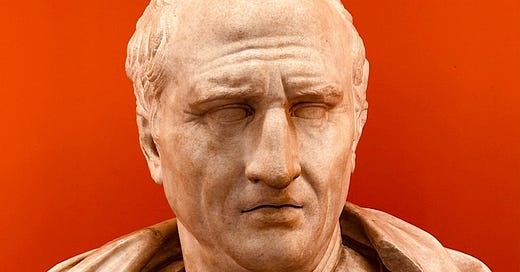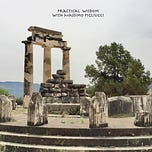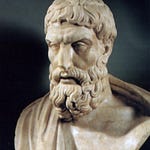“The opinion of Socrates respecting this matter is clearly stated in the book which treats of his death, of which we have already said so much; for when he had discussed the immortality of the soul, and when the time of his dying was approaching rapidly, being asked by Crito how he would be buried, ‘I have taken a great deal of pains,’ said he, ‘my friends, to no purpose, for I have not convinced our Crito that I shall fly from hence, and leave no part of me behind. Notwithstanding, Crito, if you can overtake me, wheresoever you get hold of me, bury me as you please: but believe me, none of you will be able to catch me when I have flown away from hence.’
That was excellently said, inasmuch as he allows his friend to do as he pleased, and yet shows his indifference about anything of this kind.
Diogenes was rougher, though of the same opinion; but in his character of a Cynic he expressed himself in a somewhat harsher manner; he ordered himself to be thrown anywhere without being buried. And when his friends replied, ‘What! to the birds and beasts?’ ‘By no means,’ said he; ‘place my staff near me, that I may drive them away.’ ‘How can you do that,’ they answer, ‘for you will not perceive them?’ ‘How am I then injured by being torn by those animals, if I have no sensation?’ …
With regard to the body, it is clear that, whether the soul live or die, it has no sensation.”
(Tusculan Disputations, I.43)













Share this post